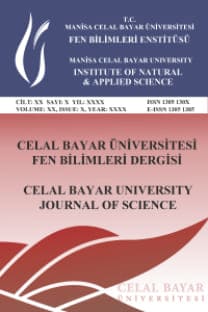Antimicrobial Activity of Phytosphingosine Nanoemulsions against Bacteria and Yeasts
Phytosphingosine (PS) is a natural antimicrobial ingredient present in the mammalian stratum corneum of the skin. The skin surface is the first line defense system against microbial colonization and infections. The aim of this study was to investigate in vitro antimicrobial effects of PS and PS-hydrochloride (PSHCl) nanoemulsion (NE) formulations and solutions against bacteria and fungi. Minimum inhibitory concentrations (MICs) of the PS-NE and PSHCl-NE formulations and PS/PSHCl solutions were determined by microdilution method against Gram-positive/Gram-negative bacteria and yeasts. Inhibitory effects were also examined by disc diffusion method and inhibition zone diameters were determined. PS/PSHCl solutions and PS-NE/PSHCl-NE formulations were prepared in different conditions. Physicochemical properties of the NEs were characterized and antimicrobial activities were evaluated. In this study we reported that the PS and PSHCl and NEs had variable antimicrobial activities for a variety of Gram-positive bacteria (MIC range 1 µg/ml to 1024 µg/ml), Gram-negative bacteria (MIC range 8 µg/ml to 1024 µg/ml) and Candida strains (MIC range 8 µg/ml to 512 µg/ml). Sphingolipids are part of the natural defense system of the body. We demonstrated that PS and PSHCl solutions and NEs have broad antimicrobial activity against bacteria and yeasts. In addition, the newly developed formulations may have potential for prophylactic and therapeutic intervention in infections.
___
- 1. Wolf, F, Juestel, C, Schreiber, J, Klier, M, Sphingolipids as antimicrobial agents, German Patent 1997, 19602108. 2. Lersch, P, Schick, U, Choosing the right ingredients for cosmeceuticals, Speciality Chemicals Magazine, 2003, 23, 30-31. 3. Gupta, A.K, Fisher, G.J, Elder, J.T, Nickoloff, B.J, Voorhees, J.J, Sphingosine inhibits phorbol esterinduced inflammation, ornithine decarboxylase activity, and activation of protein kinase C in mouse skin. Journal of Investigative Dermatology, 1988, 91, 486–491.
- 4. Rawlings, A.V, 2003. Trends in stratum corneum research and the management of dry skin conditions, International Journal of Cosmetic Science, 53, 63–95.
- 5. Drake, D.R, Brogden, K.A, Dawson, D.V, Wertz, P.W, Thematic review series: skin lipids. Antimicrobial lipids at the skin surface. Journal of Lipid Research, 2008, 49, 4 –11.
- 6. Mason, T.G, Wilking, J.N, Meleson, K, Chang, C.B, Graves, S.M, Nanoemulsions: Formation, structure and physical properties. Journal of Physics: Condensed Matter, 2006, 18, 635–666.
- 7. Bibel, D.J, Aly, R, Shinefield, H.R, Antimicrobial activity of spingosines. Journal of Investigative Dermatology, 1992, 98, 269– 273.
- 8. Fischer, C.L, Drake D.R, Dawson D.V, Blanchette, D.R, Brogden, K.A, Wertz P.W, Antibacterial Activity of Sphingoid Bases and Fatty Acids against GramPositive and Gram-Negative Bacteria, Antimicrobial Agents and Chemotherapy, 2012, 56(3), 1157-1161.
- 9. Baspinar, Y, Keck, C, Borchert, H.H, Development of a positively charged prednicarbate nanoemulsion, International Journal of Pharmaceutics, 2010, 383, 201–208.
- 10. Baspinar, Y, and Borchert, H.H, Penetration and release studies of positively and negatively charged nanoemulsions—Is there a benefit of the positive charge? International Journal of Pharmaceutics, 2012, 430, 247-252.
- 11. Kotmakçı, M, Öztürk, İ, Kantarcı, G, Ermertcan, Ş. Characterization and antimicrobial activity of novel hazelnut oil microemulsion loaded with Mitomycin C. Latin American Journal of Pharmacy, 2015, 34: 529– 36.
- 12. Fischer, C.L, Walters, K.S, Drake, D.R, Blanchette, D.R, Dawson, D.V, Brogden, K.A, Wertz, P.W, Sphingoid bases are taken up by Escherischia coli and Staphylococcus aureus and induce ultrastructural damage, Skin Pharmacology and Physiology, 2013, 26, 36–44.
- 13. Fischer, C.L, Blanchette, D.R, Brogden, K.A, Dawson, D.V, Drake, D.R, Hill, J.R, Wertz, P.W, The roles of cutaneous lipids in host defense, Biochimica et Biophysica Acta, 2014, 1841(3), 319322.
- 14. Drake, D.R, Brogden, K.A, Dawson, D.V, Wertz, P.W, Thematic review series: skin lipids. Antimicrobial lipids at the skin surface. Journal of Lipid Research, 2008, 49, 4–11.
- 15. Pavicic, T, Wollenweber, U, Farwick, M, Korting, H.C, Anti-microbial and -inflammatory activity and efficacy of phytosphingosine: an in vitro and in vivo study addressing acne vulgaris. International Journal of Cosmetic Science, 2007, 29, 181–190.
- 16. Hoeller, S, Sperger, A, Valenta, C, Lecithin based nanoemulsions: a comparative study of the influence of non-ionic surfactants and the cationic phytosphingosine on physicochemical behaviour and skin permeation. International Journal of Pharmaceutics, 2009, 370, 181–186.
- 17. Hasanovic, A, Hoeller, S, Valenta, C, Analysis of skin penetration of phytosphingosine by fluorescence detection and influence of the thermotropic behaviour of DPPC liposomes, International Journal of Pharmaceutics, 2010, 4, 383(1-2), 14-17.
- 18. Bergsson, G, Arnfinnsson, J, Steingrimsson, O, Thormar, H, In vitro killing of Candida albicans by fatty acids and monoglycerides, Antimicrobial Agents and Chemotherapy, 2001, 45, 3209 –3212.
- 19. Veerman, E.C, Valentijn-Benz, M, van't Hof, W, Nazmi, K, van Marle, J, Amerongen, A.V, Phytosphingosine kills Candida albicans by disrupting its cell membrane, Biological Chemistry, 2010, 391(1), 65-71.
- 20. Garg, S.K, Volpe, E, Palmiero, G, Mattei, M, Galati, D, Martino, A, Piccioni, M.S, Valente, E, Bonanno, E, De Vito, P, Baldini, P.M, Spagnoli, L.G, Cilizzi, V, Fraziano, M, Sphingosine 1-phosphate induces antimicrobial activity both in vitro and in vivo. Journal of Infectious Diseases, 2004, 189, 2129–2138.
- ISSN: 1305-130X
- Başlangıç: 2005
- Yayıncı: Manisa Celal Bayar Üniversitesi Fen Bilimleri Enstitüsü
Sayıdaki Diğer Makaleler
Beyza BOSTANCI, M. M. Fatih KARAHAN
Yücel BAŞPINAR, Mustafa KOTMAKÇI, İsmail ÖZTÜRK
Prediction of Methane, Water and Ice Properties for Numerical Gas Hydrate Simulations
Derya Davarcı, Ceylan Mutlu Balcı
A Morphological Study on Endemic Erodium pelargoniiflorum (Geraniaceae), from Turkey
Emine ALÇITEPE, Ersin MİNARECİ, Dilek OSKAY
